You’ve heard the term “hard water” before. You’ve seen white spots on dishes and buildup in sinks, but did you know that the two are related? Hard and soft water are two opposite descriptions that cover tap water, and, in fact, hard water impacts many American households. Its high concentration of certain minerals causes the stains and buildup you’ve seen around the house; however, some taps can run soft water without treatment. Ultimately, the quality of water that is dispensed in your home both depends on the region you live in and whether or not you have a water softener installed.
What are the main differences between hard vs soft water, and how do both affect you?
At a Glance:
How can you tell if you have hard water?
What are the benefits of soft water vs hard water?
What is Hard Water?
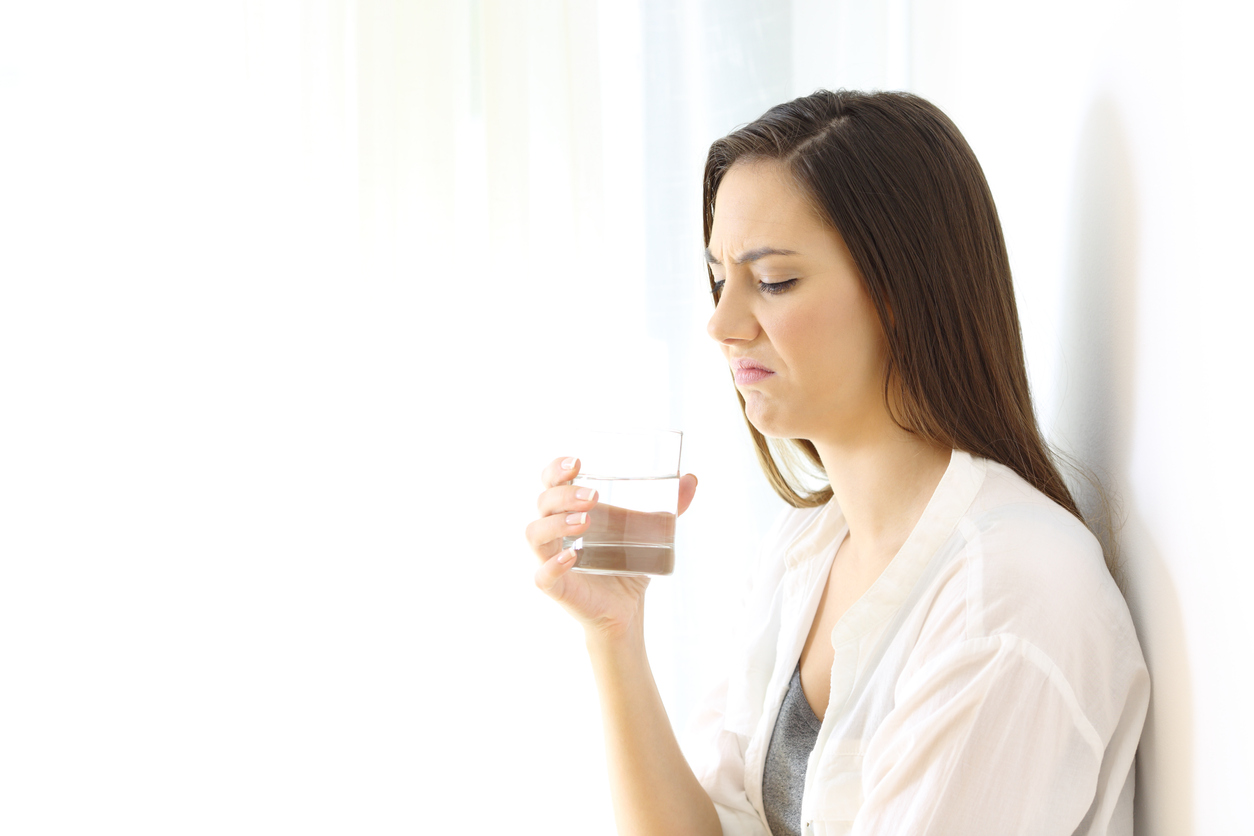
Hard water is water dispensed through a faucet that is contaminated with a large percentage of minerals like calcium and magnesium. These minerals are collected as the water makes its way through pipes and into the home. This is especially a problem in Arizona. In the Grand Canyon State, mineral levels in the tap water often exceed three times the minimum amount that classifies hard water.
Is hard water safe to drink? While it is not necessarily dangerous to drink, there are several disadvantages to having hard water in your home. These include skin and hair problems, hard water stains on dishes, and buildup in plumbing and appliances.
How to Tell If You Have Hard Water
While some parts of the country experience low levels of minerals in tap water without a water softener, it is fair to assume that most tap water is hard water.
Signs of Hard Water:
- Film or spots on your dishes
- Scale buildup around faucets or in appliances
- Dull, flat hair
- Dry, itchy skin
- Layer or film on hair and skin upon washing
Hard Water on Dishes
You may notice white spots or a slight film on your dishes after you wash them — this is indicative of hard water. When hard water dries on clean dishes, it leaves behind calcium and magnesium deposits, creating white spots or films. These spots do not mean that your glassware is dirty, but they can be an eyesore on what would otherwise be sparkling-clean dinnerware.
Hard Water on Faucets, Sinks, and Appliances
Another place where hard water can be traced is around faucets or reservoirs where water is dispensed, like your sink, bathtub, or washing machine. Water frequently dries from these surfaces, meaning that they may hold a large deposit of minerals from hard water. These white and flaky blemishes can also be referred to as limescale, mineral buildup, or hard water deposits. Stains look unpleasant, and hard water stains are even worse when it comes to cleaning. Scrubbing and harsh chemicals are often required to remove hard water buildup.
Hard Water on Hair
Like dishes and sinks, hair is exposed to faucet water regularly in the shower or bath. This means that hair is susceptible to damage from hard water, as the minerals that are present can leave a film on the hair. This film may prevent moisture and products from getting to the strands, leaving hair dry and brittle. Dry hair can lead to further issues such as breakage and frizz.
Hard Water on Skin
Much like hair, skin can become dry and irritated when frequently exposed to hard water. This is due to the film created by the minerals in hard water. The film makes it difficult to wash soap away from the surface, and it absorbs the natural oil and moisture that your skin produces naturally. The effects of hard water on skin include dry spots and irritation that may leave it feeling itchy or dehydrated. These conditions may be worsened if you have naturally sensitive skin or a skin-related ailment like eczema or psoriasis.
What is Soft Water?
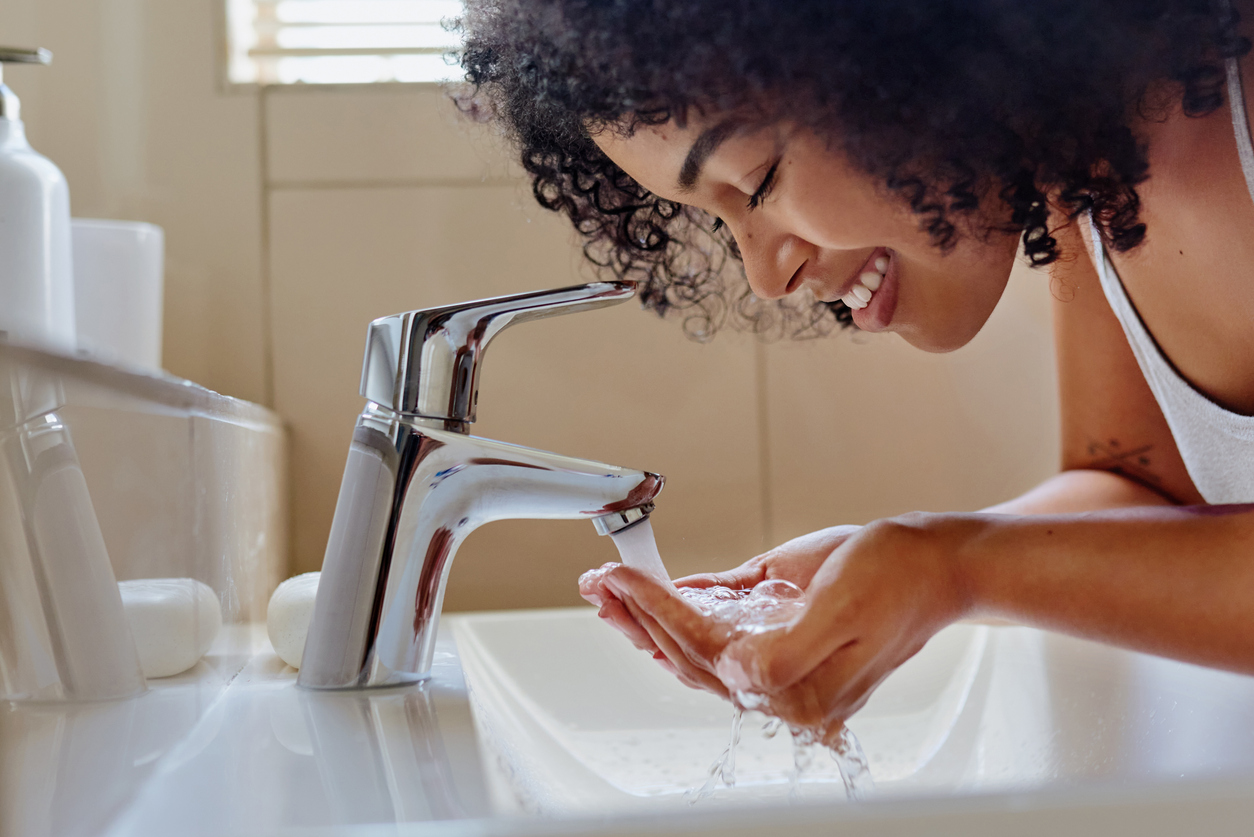
Water that runs through a water softener is referred to as “soft” water. A water softening system removes most of the minerals present in hard water, resulting in filtered water that leaves less residue on dishes, household equipment, skin, and hair. Soft water is also available in regions of the United States where the water supply is less affected by mineral deposits. Some areas experience naturally soft water, and some areas see minimal mineral concentration that is between hard and soft water. These areas may not experience the downsides of hard water.
Benefits of Soft Water vs Hard Water
Without the excessive levels of calcium and magnesium, you will experience fewer of the ailments of hard water we outlined. Instead, you’ll experience the opposite of these disadvantages.
Benefits of soft water include:
- Cleaner, shiny dishes
- Clean sinks and faucets with no mineral buildups
- Softer, healthier hair
- Comfortable, healthier skin
Water Softeners
Softening water is quick and easy with water softeners. A water softener can be installed quickly, efficiently reducing hard water stains from your faucets. Smaller water softening systems can be installed for households with fewer people; however, if you have a large family, you’ll want to invest in a larger water softening system to keep up with the demanded flow and reduce water pressure issues and strain on a system that may be too small.
For a household water softener, we recommend an Envirotec model. Envirotec water softeners come in different sizes to satisfy different needs. Here are our top picks from our catalog:
- Largest Capacity: Envirotec Water Softener System ET64H
- Mid-Sized Capacity: Envirotec Water Softener System ET50HWS
- Smallest Capacity: Envirotec Water Softener System ET42H
1. Envirotec Water Softener System ET64H
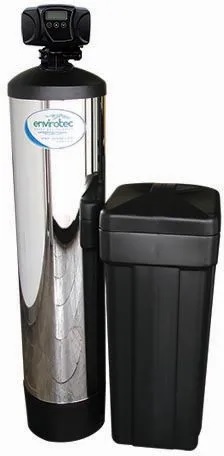
This Envirotec water softener system features a multiple-tank design. This allows for easier movement of the system for service work or relocation to a new home. It has a very large capacity of 64,000 grains. This size system allows the system to regenerate the least, extending the system’s lifespan. The large capacity also reduces hard water bleed-through, giving you a better result.
Capacity: 64,000 grains
Features:
- Highest Capacity
- Multiple Tank Design
- Regeneration Tank
- Maxflow™ Valve
- Enviroguard™
- Ultrastar™ Resin High-Temperature Resin
- Outstanding warranty
2. Envirotec Water Softener System ET50HWS
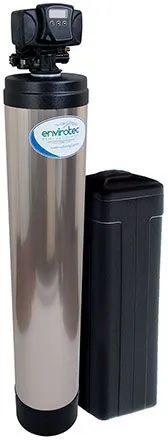
This water softener system from Envirotec features a new efficiency booster that knows precisely when to regenerate, saving water and salt usage up to 75 percent over conventional water softeners. The valve has excellent service flow rates for better water pressure at your showers and faucets than other systems.
Capacity: 50,000 grains
Features:
- Digital Demand Monitoring
- Superior Capacity
- Multiple Tank Design
- Regeneration Tank
- Maxflow™ Valve
- Enviroguard™
- Ultrastar™ Resin High-Temperature Resin
- No warranty compares
3. Envirotec Water Softener System ET42H
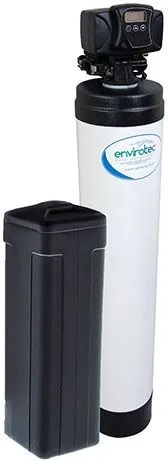
This is the smallest of our chosen Envirotec water softener systems. This is designed to handle harsh water conditions with MaxFlow, giving the system a high flow to meet the demand.
Capacity: 42,000 grains
Features:
- Designed to handle harsh water conditions
- MaxFlow™ high flow metered demand valve
Shop Water Softeners at Spencer’s TV & Appliances
At Spencer’s TV & Appliance, we provide high-quality, name-brand appliances for great prices. We hope our guide to getting rid of hard water stains on dishes helps you get shiny, spot-free dishes. You can also shop water softeners online or visit us today at one of our locations in the Phoenix, Scottsdale, and Glendale regions.
Related: 8 Ways Envirotec Water Purifiers Will Upgrade Your Life


